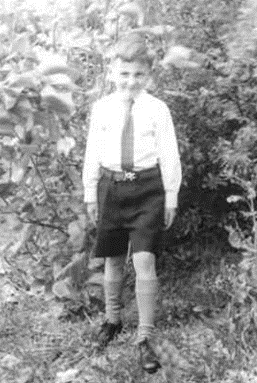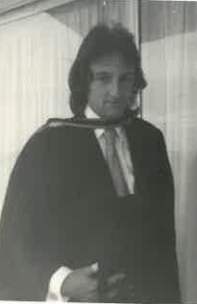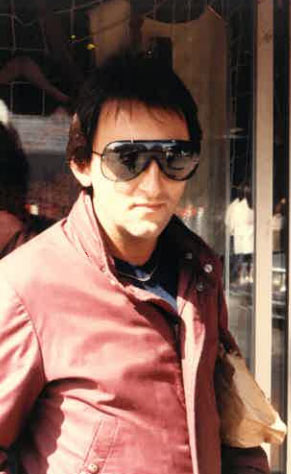Philip Gerard Gasquoine, Ph.D.

The author was born and raised in Wellington, New Zealand who was first introduced to neuropsychology when he took a course from Dorothy Gronwall, PhD (of Paced Auditory Serial Addition Task [PASAT] infamy) while a student in the Master of Science program in psychology at the University of Auckland. She supervised his master’s thesis entitled The effect of traumatic concussion on language, whereby it was discovered that there was no such effect.

Limited opportunities for employment in his chosen field in New Zealand provided the impetus for continued study abroad. In 1979 he was accepted as a doctoral student into the neuropsychology subprogram at Queens College of the City University of New York. As part of his doctoral studies, he completed a predoctoral practicum under the direction of Leonard Diller, PhD, at the New York University Medical Center, Rusk Institute of Rehabilitation Medicine that aroused an interest in cognitive rehabilitation that would influence early career directions. He also served on a research project under the direction of Barry Gurland, MD at the Columbia University Center for Geriatrics and Gerontology designed to determine the incidence of dementia among chronic psychiatric inpatients at Harlem Valley Psychiatric Center in Wingdale, New York. This experience exposed him to asylum medicine and sparked an interest in the diagnosis of age-related dementias that would dominate later career clinical endeavors.
Mitchell Kietzman, PhD, as much a friend as a mentor, supervised his doctoral dissertation on the effects of aging on early information processing in the visual system. Exposure to research on information processing models of cognition convinced him to become a clinician. His first postdoctoral appointment was as a clinical neuropsychologist at the Head Injury Center at Lewis Bay in Hyannis, Massachusetts, on Cape Cod, where he was initially supervised by Edith Kaplan, PhD. It was she who taught him how to conduct neuropsychological assessments.
The Lewis Bay experience tempered his enthusiasm about the efficacy of rehabilitation therapies for chronic, severe, brain injury cases and he soon moved to acute rehabilitation settings, first at the Rehabilitation Hospital of the Pacific in Honolulu, Hawaii, and then at the Rehabilitation Hospital of South Texas in Corpus Christi, Texas. The latter was an 80 bed, acute, specialty rehabilitation hospital where he served for over three years as the Director of Psychology. In 1995 he set up in independent practice as South Texas Neuropsychology, PC in Corpus Christi. This provided an opportunity to pursue varied areas of practice especially the neuropsychological assessment of patients with postconcussion symptoms, dementias, learning disorders, and forensic cases, but mostly he learned about the business of clinical neuropsychology.

Concluding that he had learned enough after 20 years of clinical practice to teach others, he changed his career trajectory to academia and joined the Department of Psychology and Anthropology at the University of Texas – Pan American (UTPA) as an associate professor. There he earned promotion to full professor, served as the Graduate Psychology Program Director, and as Department Chair. While serving as the Department Chair he was instrumental in creating an independent Department of Psychology. In September 2015, UTPA became known as the University of Texas Rio Grande Valley after merger with the University of Texas at Brownsville and the department became the Department of Psychological Science.
He has published articles in peer-reviewed scientific journals on a broad range of neuropsychological topics including: history of neuropsychology; alien hand sign; postconcussion symptoms; billing fraud; non-central nervous system medical conditions that cause neurocognitive impairment; behavioral functions of the anterior cingulate cortex and the insula; anosognosia; Wernicke-Korsakoff syndrome; physical activity and dementia delay; and Klüver-Bucy symptoms. Due to his multicultural background, he has always had a special interest in the neuropsychological assessment of U.S. racial/ethnic minorities, publishing articles on the assessment of Spanish/English bilinguals (including performance validity measures); race-norming; and performance-based estimates of preexisting skill level. The ultimate multicultural psychologist, he has never treated a member of his own ethnicity.